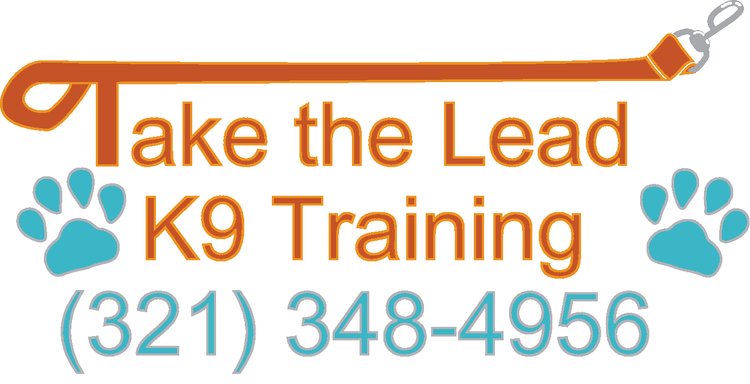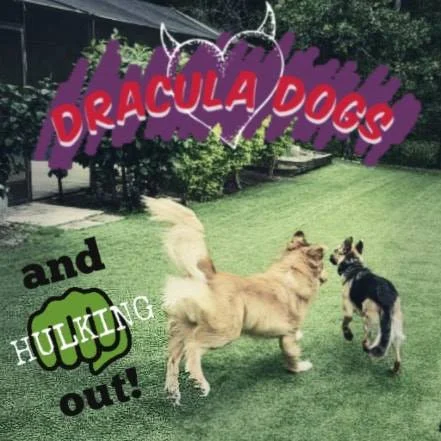Socialization Problems: Vampire Dogs & Hulking Out!
I'm sure many people are familiar with this scenario:
Two dogs are playing and both seem to be having a good time. As they continue to bounce around together, you start to notice things speeding up, getting more intense and rowdy - maybe they've started chasing each other or maybe they've started getting more physical with paws on each other's backs, mouthiness, or body slams. Then,very rapidly, there is an altercation between the dogs who were playing/interacting! Whether it's just a bunch of noise, or a full on dog fight, things that we once playful and fun quickly turned into conflict.
This kind of scenario plays out a lot - especially at dog parks, daycares, and even when introducing two dogs to each other for the first time. Even dogs who usually play well with others can get caught up in this moment of "hulking out!" Almost all of the clients we see who have dogs that are leash reactive or snapping at/getting nasty with dogs at one point played just fine! However, their social skills diminished because they got into a situation that escalated beyond their comfort zone.
Just like any relationship, dogs have limits of what is OK and what is not - and often folks don't realize that when unfamiliar dogs are brought together, none of these dogs have a relationship where they've established limits and playstyle with the other dogs. Many of these "socially akward" dogs actually do want to interact with others, but time and again are getting overwhelmed quickly and set up to be reactive to the scenario.
Why does this fine line between play and fight happen? In general the envelope starts to be pushed as intensity, excitement, and arousal increase. Bouncy play bows, and "give and take" are a softer form of play - chasing and lots of body contact is more hear pumping AND puts a lot more pressure on dogs. In general, dogs who have a history of snapping or getting into scuffles generally don't feel comfortable with too much pressure put on them - particularly by a dog they don't trust or have a relationship of limits/understanding play style and mannerisms.
Whenever we have a dog in for training that has a history of getting into fights or scuffles in social settings, our number one job is to advocate for that dog! That means, as we try to re-introduce social cues and interactions to their skill set, we make sure the other dogs they are around are polite, courteous, under control, and not putting a lot of pressure too soon on the particular dog. A huge part of helping the troubled dog is making sure they feel safe with us and know that someone else is controlling the yard (so they don't have to)!
After multiple calm and controlled social sessions, I'm not surprised to see the scuffle-pup start to sniff, engage, and relax around the dogs - not playing, not wrestling, just moving with, sniffing around, and existing with other canines. Shortly after that happens we may even see that awkward dog start to offer some play bows and get a little spunky - and that's fantastic! However, when that is happening it is SUPER important that I make sure things don't get too playful too fast!
This is what I call the "vampire dog" who is having a good time and enjoying themselves (finally!) but quickly gets in over their head as their heart rate raises and they realize they don't really "know the dog" they are playing with. It's really common to get excited our socially challenged dog is trying to play, but then see things turn into a scuffle quickly when the dog gets just a little carried away in soon uncomfortable. Like a vampire who is trying to love and be passionate with their partner, but the heat of the moment becomes to much and the fangs come out!
So, our goal is to take it slow, help dogs build relationships with appropriate and polite partners, and begin to work on their social skills. In controlled and appropriate social groups, these kinds of pups can excel, thrive, and finally get to act like a dog again! That said, these dogs are never great candidates for the dog park or doggy daycares where there is no one controlling the dogs and advocating for pups who are feeling overwhelmed or uncomfortable.
Just like people, your dog may not like every dog, but they can definitely start to rebuild their social skills in the right environment with advocacy and appropriate dog-friends!

